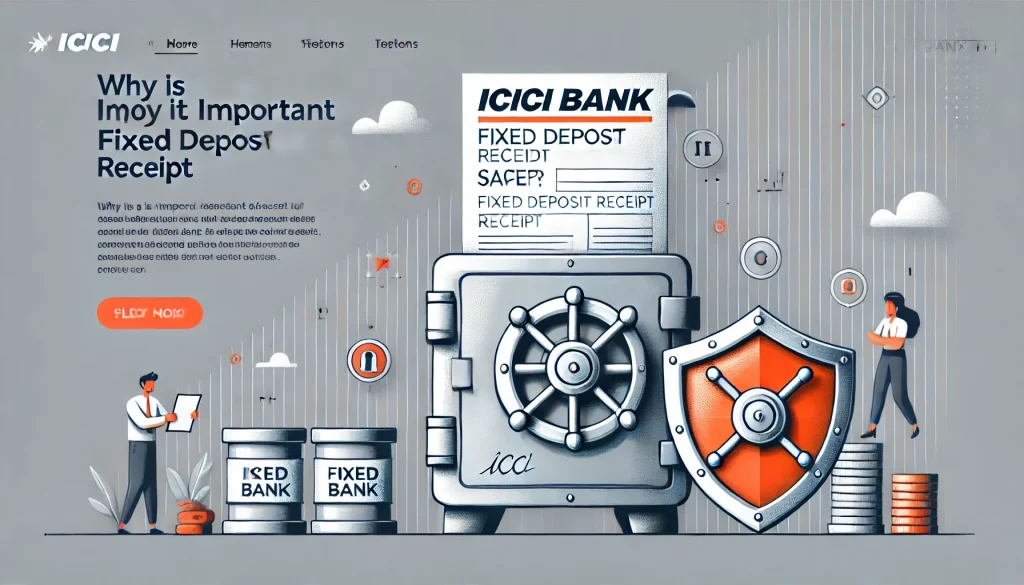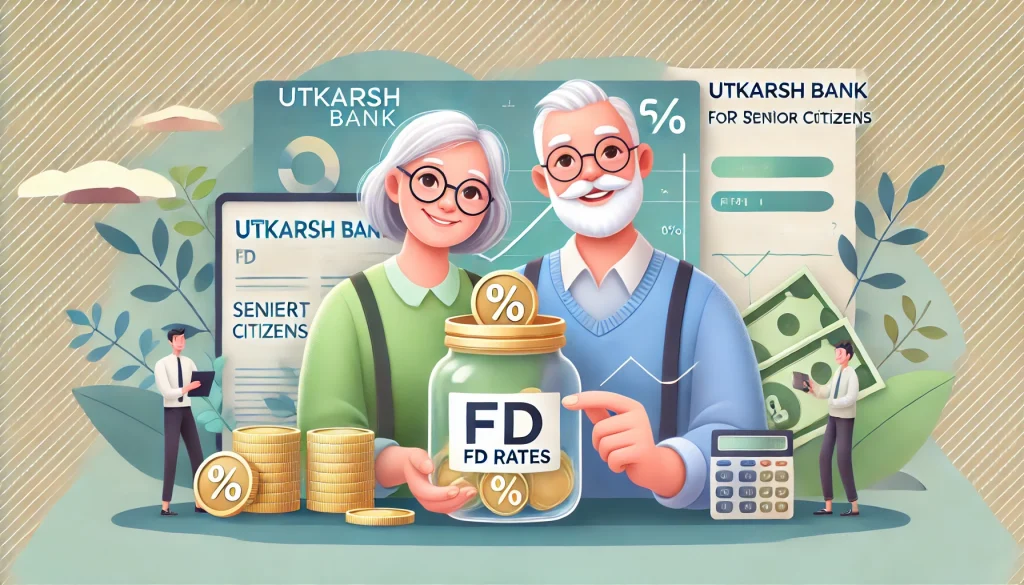
Investors are always on the lookout for options that would help them earn high returns. While fixed deposits (FDs) have been a preferred investment option for ages for their safety and security, investors are increasingly becoming aware of the benefits of mutual funds. FDs are mostly offered by banks and mutual funds are mostly offered by asset management companies (AMCs).
Often, investors are confused about what to choose when it comes to FD vs mutual fund. In this blog, we’ll explore some of the crucial aspects of both these investment options.
Fixed Deposit vs Mutual Funds
The following table shows the differences between fixed deposits and mutual funds:
| Point of Difference | Fixed Deposits | Mutual Funds |
| Risk | Generally, low-risk | Low to high (depends on the mutual fund) |
| Returns | Fixed | Market-linked performance |
| Expense | No expense | Has an expense ratio |
| Tenure | Fixed tenure | Tenure varies, depending on investors’ preferences and requirements |
| Investment Amount | Specified by bank or financial institution | Specified by AMCs |
| Fund Management | Fund managers are not required. | Fund managers are involved. |
| Flexibility | Low flexibility due to applicable premature withdrawal penalties | High flexibility (multiple schemes are available with flexible terms and conditions) |
| Regulating Authority | Reserve Bank of India (RBI) | Securities and Exchange Board of India (SEBI) |
What is a Fixed Deposit?
A fixed deposit scheme, also known as a term deposit or a time deposit, is a fixed-income product provided by banks and NBFCs (Non-Banking Financial Corporations). Investors consider it to be a safe investment product as it is associated with very low risk and offers assured returns.
You have to make a one-time deposit of a lump-sum amount for a tenure. When the tenure comes to an end, you will receive the maturity amount comprising the principal amount along with the applicable interest.
Advantages of Fixed Deposits
Let’s check the benefits of FD schemes one by one:
1. Risk-free investment option
Fixed deposit schemes are not prone to market risk which is a significant benefit. The principal amount one invests in FDs is not subject to any risk, enabling depositors to earn assured and secured interest on it.
2. Attractive interest rates
FD schemes provide higher interest rates than savings accounts which is another benefit. People who have an extremely low risk appetite but want high returns, find FDs an attractive investment option.
3. Guaranteed returns
If you invest in fixed deposits, you’ll receive guaranteed returns, irrespective of market fluctuations. An important factor to consider is that the interest rates for FD schemes remain fixed for the entire tenure.
4. Flexible tenure
A significant benefit is that you can choose a tenure depending on your financial requirements. This fixed-income investment option offers flexible tenures ranging from 7 days to 10 years.
5. Liquidity
Another substantial benefit of investing in FDs is that it allows for premature withdrawal in case the depositor is faced with financial emergencies. However, depositors will have to pay penalty charges if they withdraw their investment before its maturity.
6. Tax advantages
If you invest in tax-saving FDs, you can get tax benefits under Section 80C of the Income Tax Act of India. You can seek tax deductions up to ₹1.5 lakhs in a financial year if you invest in FD schemes. Moreover, senior citizens receive tax breaks on the interest amounts on their fixed deposits.
Who Should Invest in a Fixed Deposit?
Here’s a list of those people who should ideally invest in FD schemes:
1. Senior Citizens
Generally, senior citizens search for safe and secure investment options due to their low-risk appetite and limited income/savings. FDs are an ideal investment option for them since these schemes offer preferential interest above the regular interest rate applicable to general citizens.
2. Risk-averse Investors
Fixed deposits are an ideal option for risk-averse investors. FDs offer guaranteed returns which assure risk-averse people that they won’t lose their hard-earned money.
3. Individuals with Short-term Financial Goals
FDs have different tenure options starting from 7 days. As a result, people who have short-term economic requirements can consider FD schemes to fulfil their objectives. It will help them earn fixed returns in a short timeframe.
4. Taxpayers
Tax-saving FDs enable investors to seek tax benefits which makes it a perfect investment option for taxpayers. If you invest in a tax-saving FD, you can claim deductions of a maximum ₹1.5 lakh. By saving the amount, taxpayers can build up a corpus which would help them meet their financial requirements easily.
What is a Mutual Fund?
A mutual fund pools money from various people and invests in a portfolio of bonds, stocks and various other securities based on the fund’s underlying objective. Increasingly becoming popular among Indian investors, mutual funds are managed by expert fund managers who have the required knowledge and expertise to manage the money invested on an individual’s behalf.
These investment options can either be actively managed or passively managed. It is the responsibility of the fund manager to choose and invest in the securities based on the fund’s objectives. Mutual funds are a good option to diversify one’s investment portfolio.
Benefits of Mutual Funds
In this section, we will explore the benefits of mutual funds:
1. Portfolio Diversification
Mutual funds offer investors a diverse portfolio as it invests in stocks, bonds and securities. As a result, it brings down the level of risk significantly which helps investors greatly.
2. Returns
Returns generated by mutual funds depend on market performance. In other words, when the market performance is good and the strategies of the fund manager turn out to be a success, investors would receive high returns. However, the fund might generate low returns if the market sees a downfall.
3. Beats Inflation
If you wish to achieve higher returns compared to the inflation rate, you should consider investing in mutual funds instead of deposits at banks. Keep in mind that certain equity schemes and hybrid funds hold the record of yielding inflation-adjusted returns.
4. Professional Management of Funds
Professional fund managers are responsible for managing mutual funds. These are experts with requisite knowledge and expertise to analyse the securities, shares and bonds and make decisions accordingly. One of the most important benefits of mutual funds is the presence of a fund manager. In this case, investors do not have to spend time managing their investments.
5. Flexibility
If you have a lot of surplus funds, you can make a one-time lump sum investment in your preferred mutual fund. However, investors with limited funds can opt for the systematic investment plan (SIP) where they can invest a particular amount every month. The fact that you can choose any tenure of your preference is a major advantage. Moreover, there’s no limit to the maximum investment amount which helps immensely.
6. Liquidity
You can buy and sell mutual fund units whenever you want which is an added benefit. You can adjust your mutual fund investments according to your changing financial requirements which makes it a highly liquid and flexible investment option.
Who Should Invest in a Mutual Fund?
This section will throw some light on the ideal investors of a mutual fund:
1. Investors Seeking Portfolio Diversification
Mutual funds invest in stocks, bonds and various securities, as already mentioned before. Investment in a mutual fund is an effective way to build a diverse portfolio.
2. Individuals Seeking Higher Returns
People who wish to earn higher returns than fixed deposits, savings and current accounts should ideally invest in mutual funds. However, such individuals should remain invested in a scheme for a long tenure and be prepared for market fluctuations.
3. Long-term Investors
Investors who have long-term financial goals should consider investing in mutual funds. The effect of market volatility on these schemes gets smoothed out over an extended investment horizon. Moreover, the long-term returns yielded by mutual funds are considerably higher than bank deposits.
4. Taxpayers
Taxpayers can invest in ELSS (equity-linked saving schemes) if they wish to seek tax benefits. Investments up to ₹1.5 lakhs are entirely tax-exempt. So, individuals can opt for mutual funds in case they wish to build a substantial corpus while saving taxes.
Fixed Deposit or Mutual Funds – Which One is Better?
What should you choose between a mutual fund vs fixed deposit? In this section, we will delve into the details.
Since ages, Indians have opted for fixed deposits as their preferred investment option. Due to a lack of awareness, people were unaware of the benefits of mutual funds for a very long time. However, these hold the potential to generate higher returns than bank deposits and carry favourable tax benefits.
It is not possible to state which option investors should choose between FD vs mutual funds, as it will depend on an individual’s financial requirements.
An important feature of mutual funds is that investors do not have to pay taxes when the returns accumulate. Taxes are applicable only upon redemption or selling of mutual fund units. On the other hand, taxes are applicable on FDs even when interest accumulates on the deposits. Moreover, mutual funds are better at beating inflation than FD schemes.
While comparing FD vs MF, you must take certain important factors into account. Mutual fund returns are market-linked. However, the market risks get smoothed out if people remain invested for a long tenure. The key to successful mutual fund investment is to take into account one’s risk profile before choosing a scheme. In this case, experts advise beginners to start investing in low-risk schemes before moving on to high-risk ones.
Final Word
Often, investors are confused about what to choose between FD vs mutual fund. Both these investment options have their features and benefits. If you have a low-risk appetite and wish for assured returns, you should opt for fixed deposits. On the other hand, if you are willing to take a bit of risk and can afford to remain invested for a long tenure, mutual funds would be a more ideal option.
FAQs
Fixed Deposits are considered relatively safe, but they do carry some risk. Assessing the institution’s credibility before investing and staying within the deposit insurance limit the DICGC offers is essential.
Mutual Funds do not guarantee returns as they are subject to market risks. The returns depend on the performance of the underlying securities in the portfolio.
FDs are generally more suitable for short-term investments due to their fixed interest rates and lower risk. Mutual Funds are better suited for long-term investments.
Mutual Funds offer liquidity, but the ease of withdrawal depends on the type of Mutual Fund. Some funds may have exit loads or specific redemption periods.
Consider factors such as investment objective, risk profile, past performance, fund manager expertise, and expense ratio when choosing a Mutual Fund. It’s advisable to consult a financial advisor for personalised guidance.
Disclaimer
This article is solely for educational purposes. Stable Money doesn't take any responsibility for the information or claims made in the blog.


